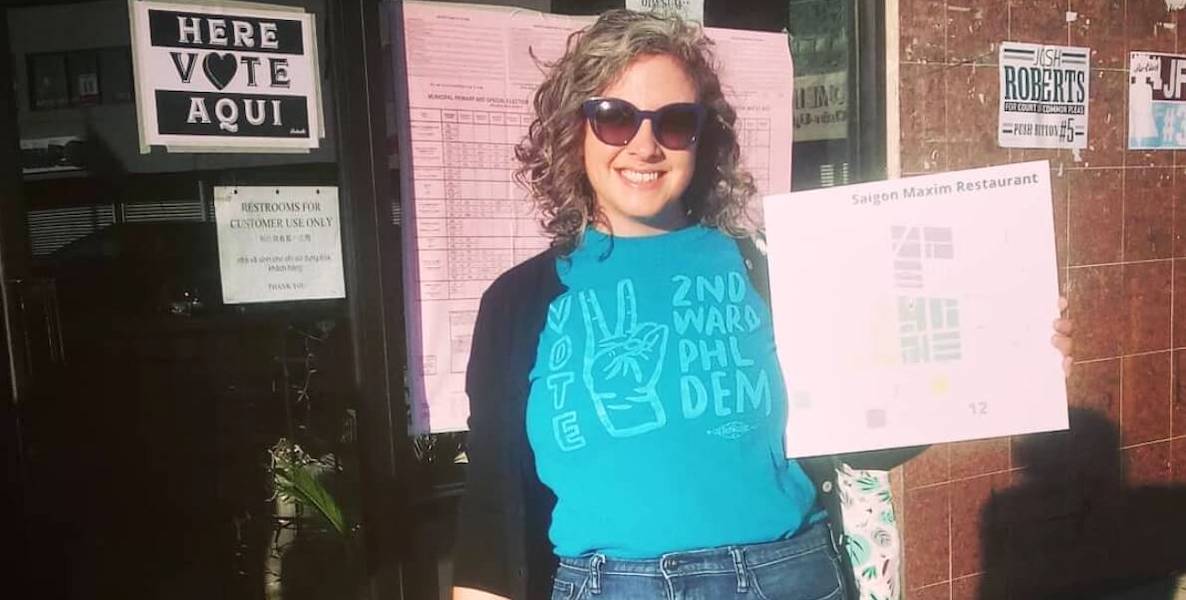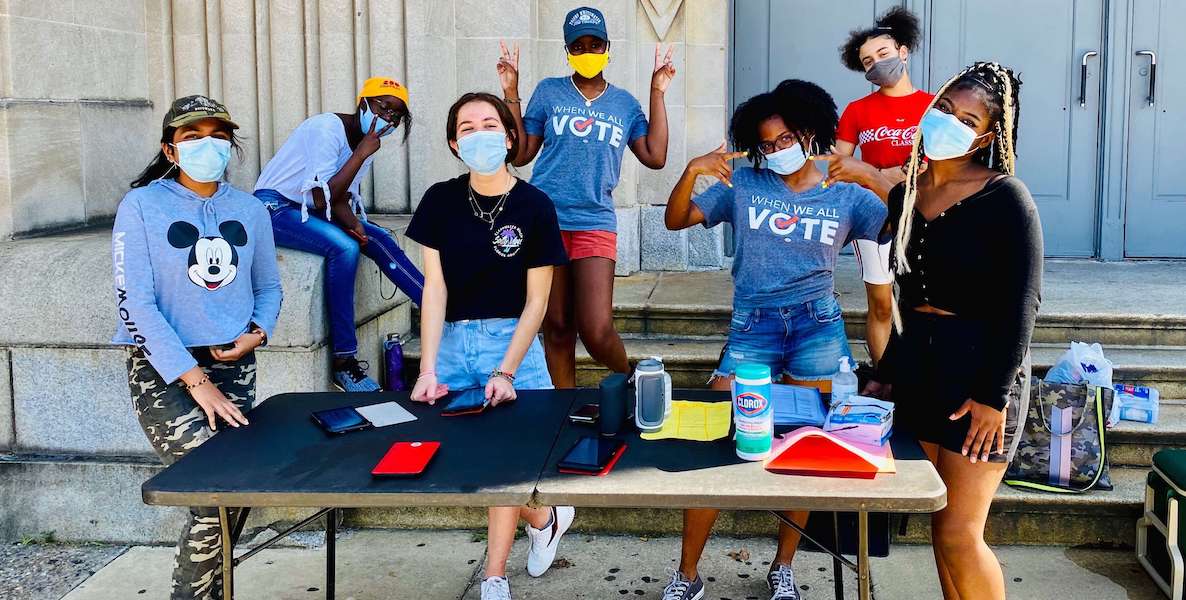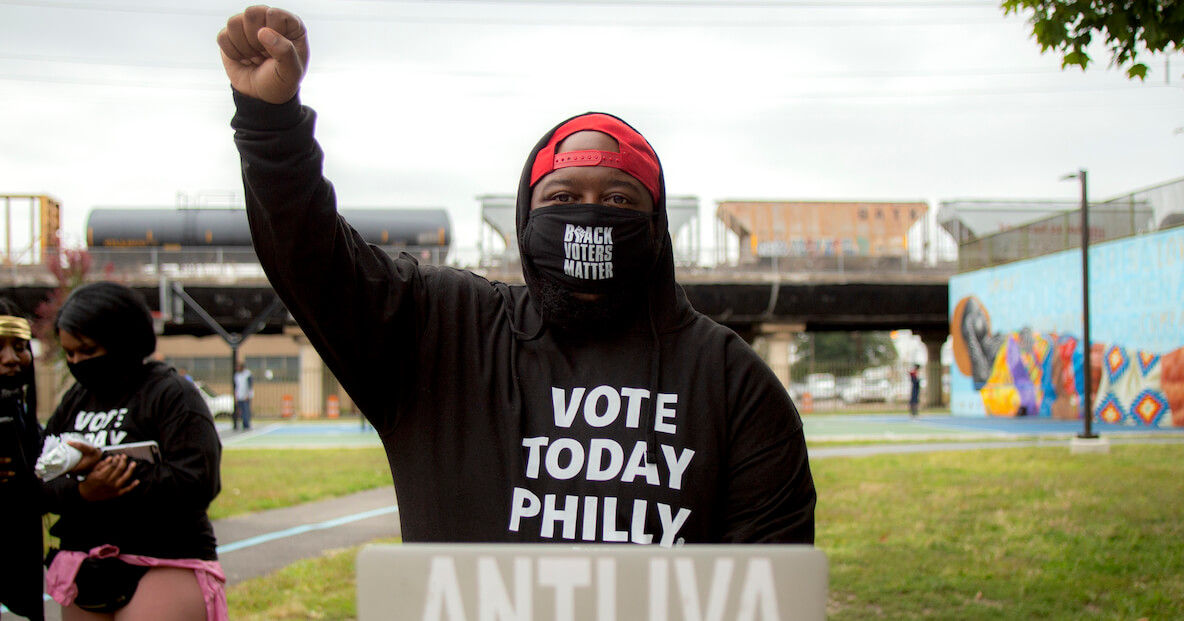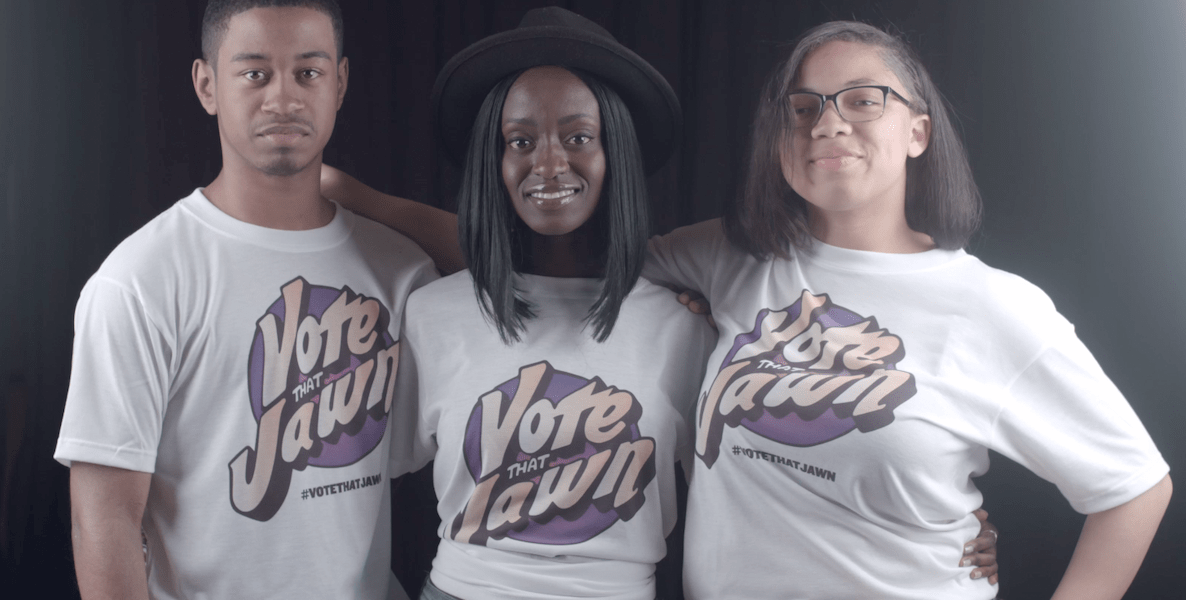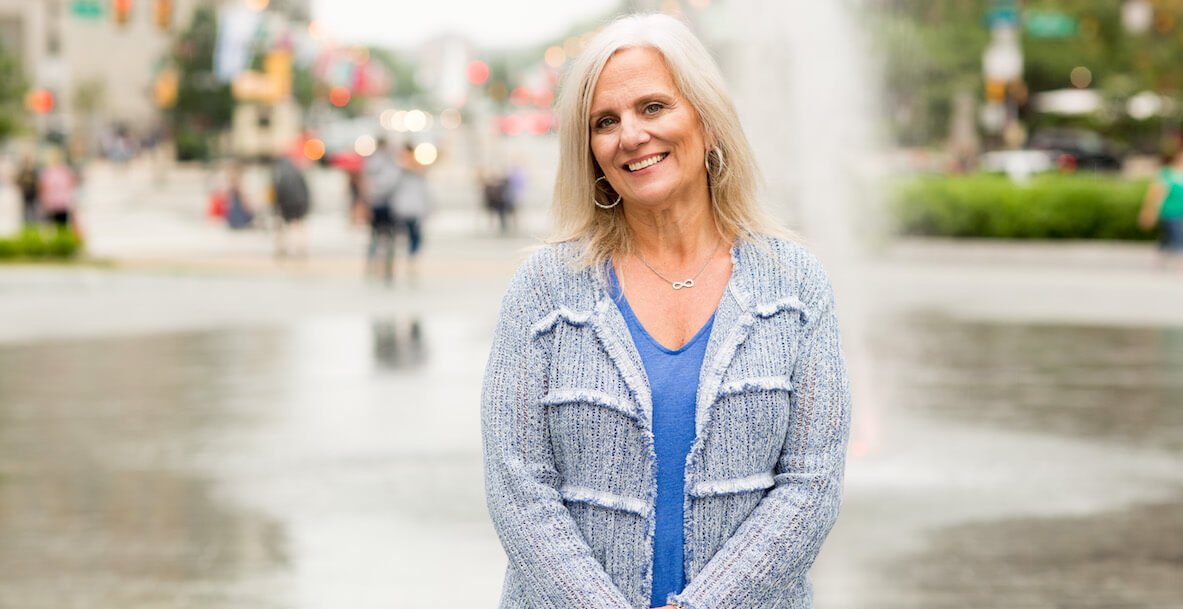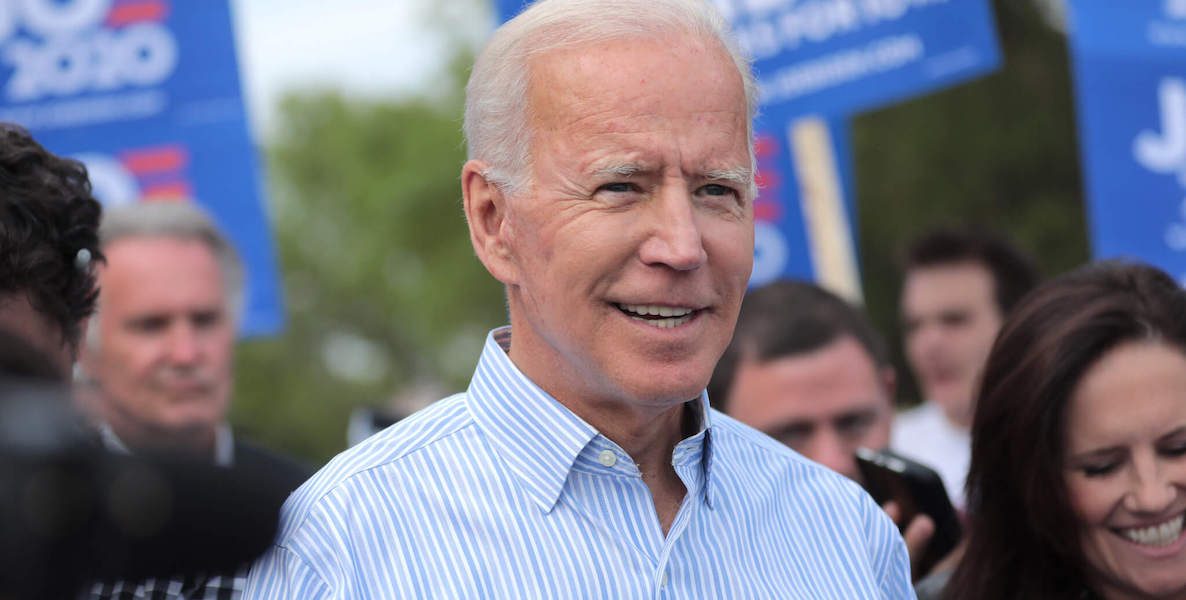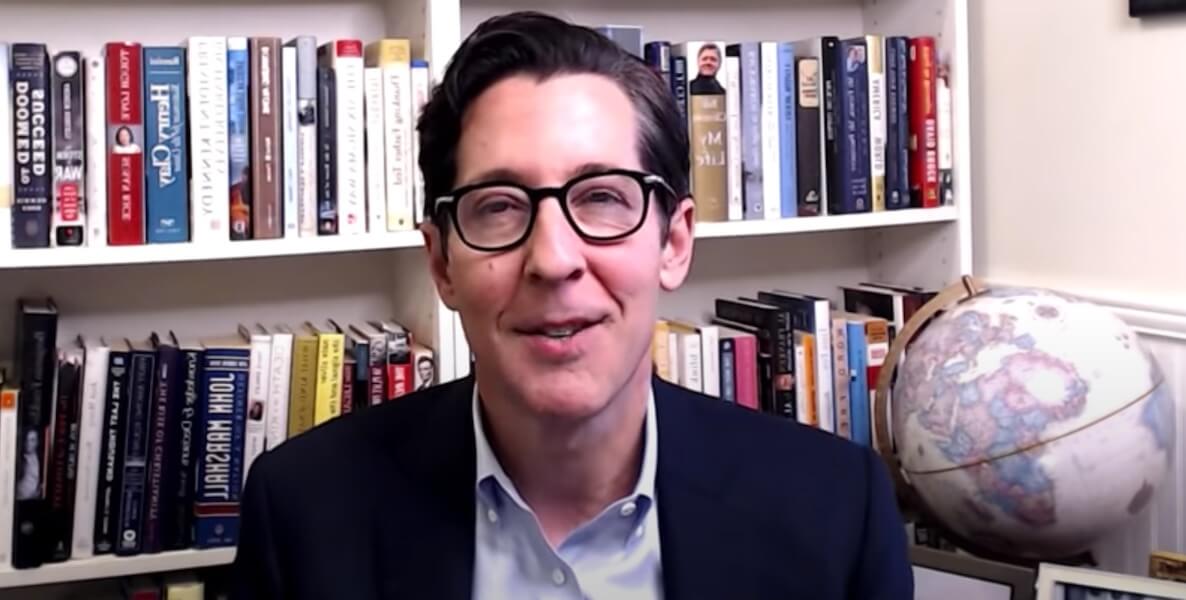Lisa Deeley is so steeped in Philly’s Democratic machine politics, she hasn’t missed an election since she was seven.
Growing up as the only kid in her grade school class with a single mother, she tagged along with mom everywhere. And, given that, on top of two other jobs, her mom was also the neighborhood committee person, Deeley naturally spent every election at the polling station.
“We voted in an old barber shop on Lansing Street and Bustleton Avenue. I used to sit all day, spinning around in that barber chair until my grandmother would come and say ‘You’ve gotta go to bed now, you’ve been here long enough,’” she recalls.
When Deeley turned 18, she wanted to be the committee person—but mom still had that post.
Despite specious claims of fraud, how did Philly come out of its role in this historic election looking good? To hear Deeley tell it, it wasn’t by accident.
“So my mom suggested I run for judge of elections, to really learn the mechanics of what’s going on,” Deeley says. And that’s what she did: At 18, she was elected to the job. By the time she was 21, Deeley’s mom had joined the Philadelphia Sheriff’s Office and would later be appointed by then-Governor Ed Rendell to become the first female sheriff in Philly history; Deeley became committee person.
She’d stay in public service, going on to work in constituent services in the 174th Legislative District which, at the time, had the highest senior population in the state, before being elected a Philadelphia city commissioner nearly five years ago and voted chairwoman less than two years later.
Ready for a close-up
Now, over the last week-plus, the nation, and the world, has thrust a spotlight on Philadelphia’s electoral process en masse. And you’d be forgiven if, prior to the city’s closeup, you’d doubted whether Deeley’s team was up to the challenge.
There was the steady stream of news stories in recent years documenting inefficiency, and worse, out of the city commissioners’ office—everything from a no-show commissioner to a less-than-transparent process in procuring new voting machines.
But Deeley and her fellow commissioners, Republican Al Schmidt and Omar Sabir, defied the doubts and, in the process, just might have struck a much-needed endorsement of a group we typically think about only when things don’t go well: bureaucrats. After all, the plane that lands safely is never a news story.
Despite specious claims of fraud, how did Philly come out of its role in this historic election looking good? To hear Deeley tell it, it wasn’t by accident. There were months of preparation and hustle. Using a $10 million grant from the nonprofit, nonpartisan Center for Tech and Civil Life, Deeley’s office established 17 satellite election offices around the city, and 11 secure drop boxes, a feat that hasn’t been seen anywhere else in the state.
But even before 2020, Deeley was focused, as she puts it, on “front-facing” her office. Key among Deeley’s mission when she took office: Engage more people—particularly youth. Her office passed the motion to create the student poll-worker program, which taps 17-year-olds to volunteer on Election Day.
At Central High School, where Thomas Quinn teaches social studies and leads a citywide effort to register young voters, the commissioners even run student council elections. “They show up to the school with voting machines for students to cast their votes, and of course they get an ‘I Voted Today’ sticker,” Quinn says.
Lorene Cary, author, Penn Professor, and the force behind the youth voter engagement initiative Vote That Jawn, says that Deeley—as well as Schmidt and Sabir—have been instrumental in drumming up registrations around the city. She says the smooth operation of this election blew her away.
“As someone who is supposed to imagine things—I never imagined it. And they pulled it off,” Cary says.
In overseeing the craziest election in recent history, Deeley has remained committed to getting and counting every eligible vote. She’s disappointed that 4,000 ballots arrived naked, lacking their required inner envelope—but was energized by the efforts of celebrities from John Legend to The Roots and Jimmy Fallon to avoid an even greater number of ballots coming in undressed. “The education and the attention that came with it really helped,” she says.
There’s a video floating around online from 2018, just before the Eagles went to the Super Bowl. In it, Deeley is asked about fans’ passion for voting, relative to football.
“If I could get this many people interested in the next election coming up, I’d be a superstar, bigger than Nick Foles,” she says.
Beating the ‘Burgh
In another recent video, an interview with Committee of 70 President and CEO David Thornburgh from before Election Day, Deeley rallies citizens to get their ballots in, in greater numbers than Pittsburgh.
Deeley’s leadership in committing to count through the night on election night helped put Philly in the spotlight. “Our plan all along, regardless of what was happening in other states, was to go 24 hours until it was done,” she says.
“We don’t want to get beaten on the ballots in Steeler Country! Come on, we have to show them who Philly is—we can’t let them beat us on the ballots!” she says.
It was a joke, but Philly’s timing, in “delivering” Biden the win before Allegheny County, instantly became a source of pride for our city, a morale-booster.
Deeley won’t take credit for it, shrugs it off as mere timing.
“It’s how the chips fell,” she says. “We were just churning it out, and we turned the votes in and how they come out, they come out.”
Still, some argue that it was Deeley’s leadership in committing to count through the night on election night that helped put Philly in the spotlight. That, too, was hardly a game-time decision. “Our plan all along, regardless of what was happening in other states, was to go 24 hours, to keep going until it was done,” she says.
“The real story here is that Philadelphians in all of these departments recognized that in this city where democracy was born, Philadelphians showed up,” she says. “What we see here is just the culmination of an unprecedented collaboration between the Commissioners’ Office and every other department in the City of Philadelphia.”
Lessons learned
The election won’t be certified until November 18, so Deeley’s team is still at it. Hundreds of workers and volunteers have been part of her army, essentially living at the Convention Center.
She and her colleagues continue to fight off negative press, and debunk falsehoods. Log on to social media, and you can’t avoid the blows: There’s Deeley, being followed on the street by an aggressive Trump lawyer; there’s Schmidt on network and cable news, defending the legality of the process, taking heat from Republicans nationwide for standing by the finding that there has been no fraud, whatsoever.
Admittedly, this outlet has previously been among the chorus calling for an end to electing commissioners—and yet the 2020 election has proven just how critical it is to have bipartisan involvement in the process; there’s a reason that 60 Minutes focused on Republican Schmidt to make the case on-air for counting all votes.
There have been reports of death threats directed at the commissioners. How does Deeley deal with the pressure? “As long as I’m here, I am in service to Philadelphians, and I’m gonna work as hard as anybody could to make sure that we get this done and it’s done right,” she says.
Sounds like something Foles would’ve said in 2018.



